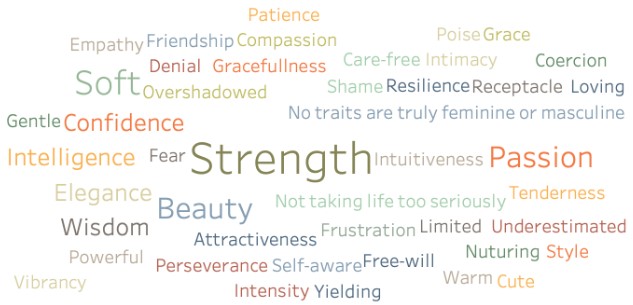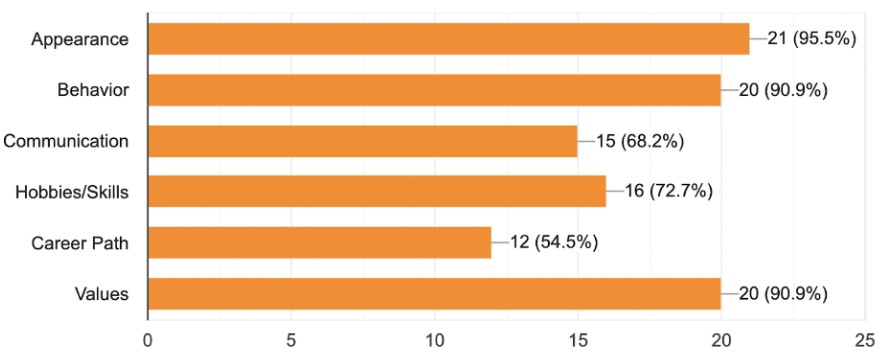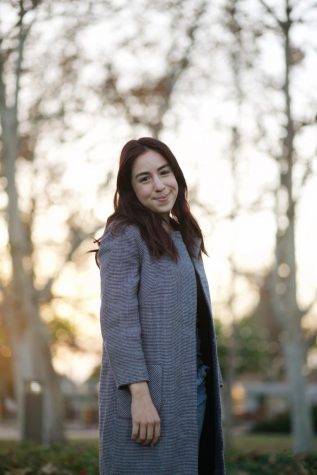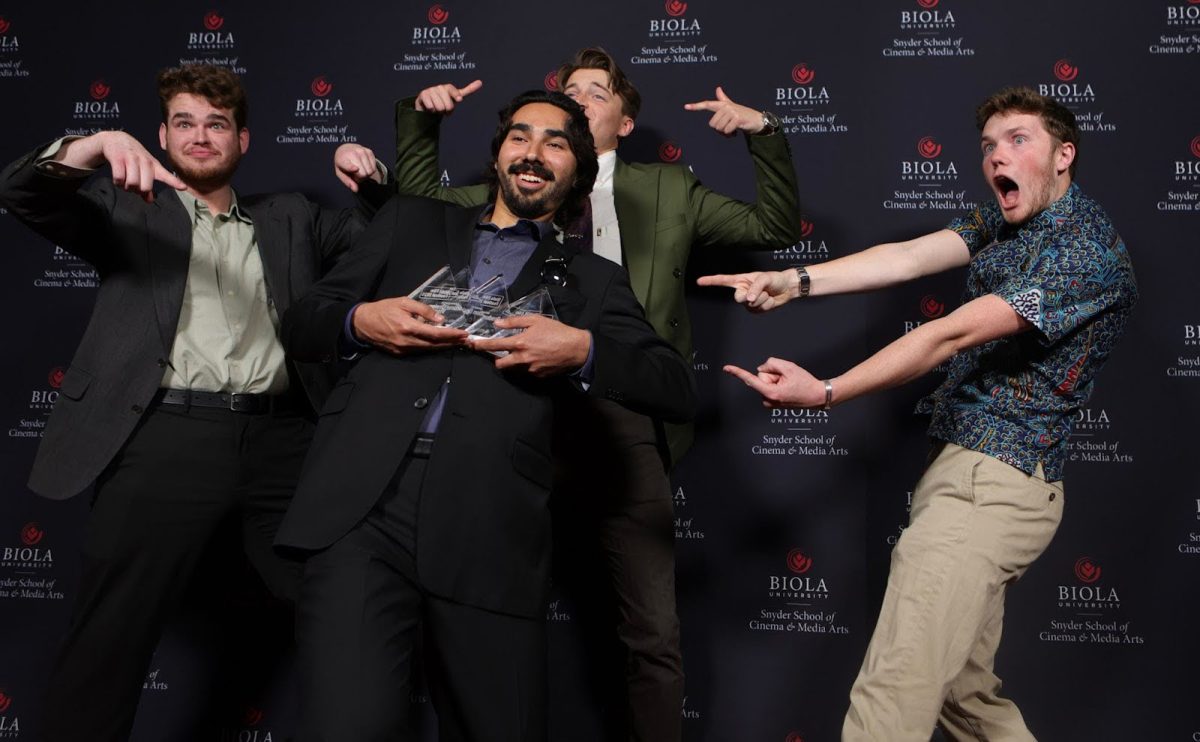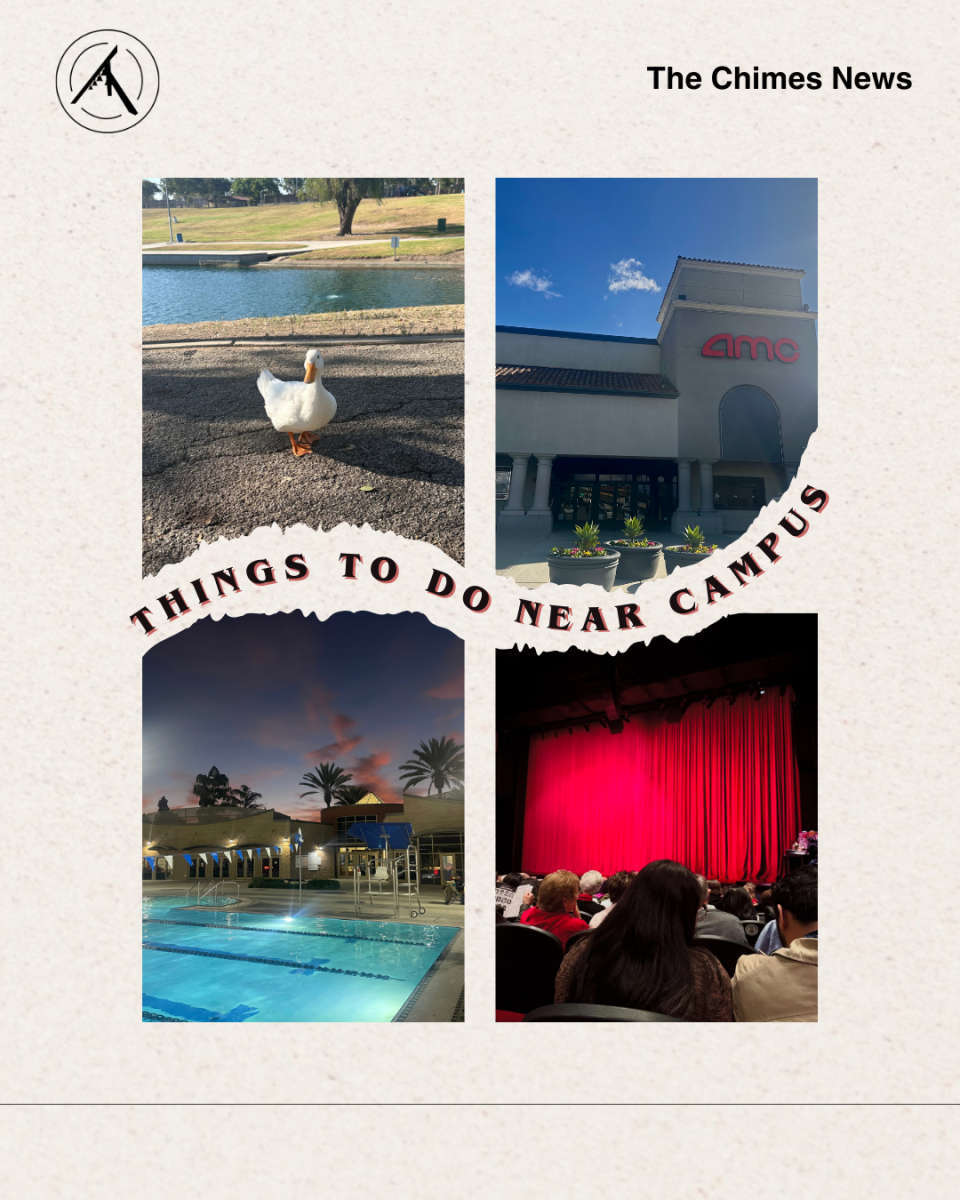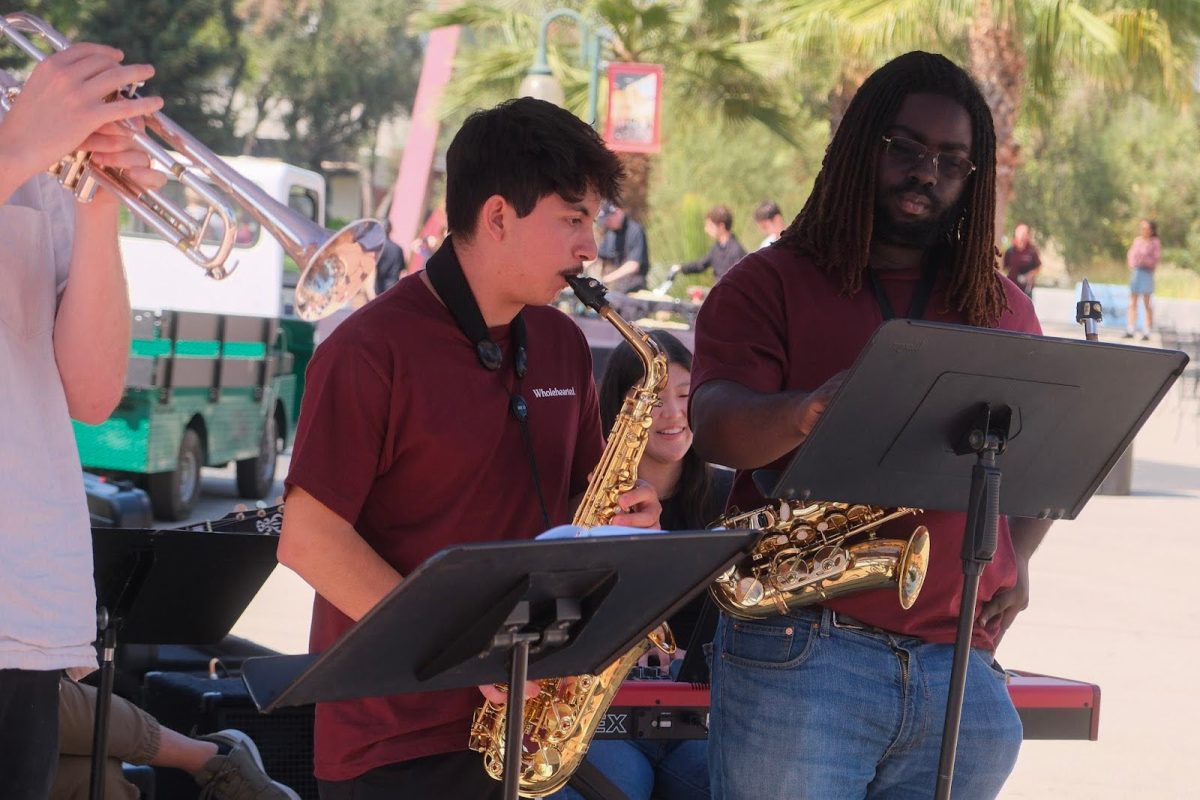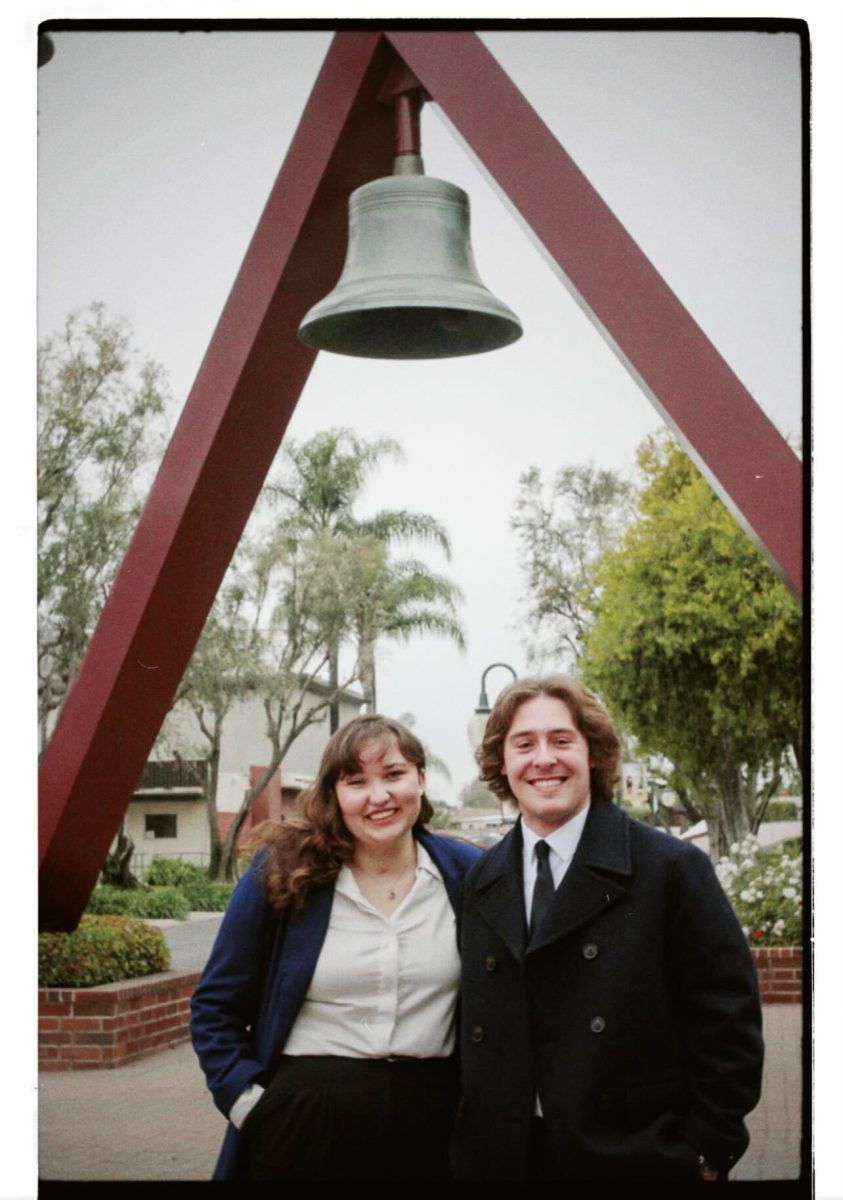The 36th Women’s History Month concluded recently, marking another celebration and acknowledgement of women who have shaped the world’s past, present and future. As public homage and conversations about personhood come to a close, a final Chimes dialogue comes from a survey I conducted of Biola’s student body, asking: What is femininity?
As perceptions of femininity are often rooted in tradition and culture, subconscious definitions of femininity are subject to change contextually. Likewise, as a Christian university in Southern California, Biola’s environment and student population creates context for what femininity means on campus. While social constructs of masculinity and femininity affect both men and women, I chose to study this concept exclusively within the demographic of women at Biola, to provide a spotlight for students to voice their experiences in the wake of Women’s History Month.
SURVEY PARAMETERS
The anonymous Google Forms survey was conducted over a four-day period, garnering responses from young women at Biola ages 18 to 22. Each respondent’s age, year in school, race/ethnicity and major were collected. The survey is a sample size of young women at Biola, comprising 22 respondents voicing their experiences and perceptions of femininity.
68.2% of participants were seniors in college and 54.5% were 22 years-old. For race/ethnicity, 77% of respondents self-identified as white, 9.1% as Asian/Pacific Islander, 9.1% as Hispanic and 4.5% as Jewish.
SURVEY QUESTIONS
The survey first asked students to define femininity in a single sentence. A wide range of responses came in; some, with more dictionary-esque responses like, “Femininity is a set of attributes, behaviors, and roles generally associated with women and girls” while others established a connection to womanhood: “Femininity is the expression of one’s gender that is generally associated with womanhood; to me, it’s very much about how I view myself as a ciswoman and what that looks like, externally and internally.”
Others chose to focus on characteristics of femininity, and how it informs personhood — not just womanhood. Responses in this category looked like: “Femininity is strength and gentleness in the mind and body,” and “Femininity is flexible – it isn’t static or restricting; it is personhood; it is strength, it is awareness, it is wisdom and beauty (not just in the physical sense of the term).”
A majority of students — 68.2% — believe that femininity is learned. The remaining 31.8% of students believe that femininity is innate. For the former, exploring which aspects are learned and how learning occurs would be valuable. For the latter, it is unclear if innate knowledge of femininity is a biological argument or if their experience of it feels so intertwined in their existence that they cannot imagine consciously learning it.
When asked how important it is to conform to traditional gender roles or expectations of femininity, 63.6% of students leaned towards “unimportant/very unimportant”. The remaining 22.7% stated that it was “somewhat important” and no responses prioritized this as “very important.” This stance seems to be a generational preference, as 50% of Gen Zers consider traditional gender roles to be outdated.
BIOLA’S INFLUENCE ON FEMININITY
Students also considered if Biola set out specific expectations for how women should express their femininity. The diagram below shows the breakdown of responses in six categories that students chose from.
The majority of students feel the institution has its own definition for what femininity means, as all categories have a response rate upwards of 50%.
When asked if these expectations positively or negatively impacted the respondent’s personal expression/experiences of femininity, 86.4% of women responded that they feel it negatively or somewhat negatively impacts them. 63% also said that they had felt judged or criticized for their personal expression of femininity on Biola’s campus.
SUMMARY
While the demographic clearly leans toward a specific age and year of students (22-year-olds and seniors) the positive in this is that these older upperclassmen have likely been at Biola for a total of four years and are well-versed in its culture.
The responses were also heavily informed by one specific population: young white women. This trend is unsurprising, given the demographic racial/ethnic breakdown of Biola’s student body. Since 77% of these perceptions are voiced by that group, increased racial diversity in the sample would be needed to most accurately represent young women at Biola.
As with any student body, ideas on the origins and effects of femininity are mixed. Biolans tend to believe that femininity is both trait- and experience-oriented. Many acknowledge femininity as an innate part of personhood, not limited to womanhood. Most agree that femininity is always learned.
The former may explain the sample’s preference to discard traditional gender roles and expectations of femininity; if femininity is grounded in personal experience, then it is more likely to clash with predetermined social expectations. A self-determined and experience-based definition of femininity explains Biolans’ blatant discomfort at feeling pressure from the university in how to appear, behave, value, communicate and spend their time.
Given their multifaceted experiences, participants chose to share what they wish Biola (and the general public) knew about femininity:
It doesn’t make you any less of a human, and especially any less of a man. It is a word to describe a certain character posture that has nothing to do with what’s in between your legs. It’s beautiful and nothing to be scared of. It is also not required nor a social box you have to be trapped in.
Without our consent we represent our entire gender. We feel the weight of each others’ failures and wins. Everything holds so much more weight because it feels like everything is on the line.
It’s not something to be denied, changed, or conformed to. It is something that should encourage you and inspire you to be better. There are many ways to show off femininity as long as you are a decent female human being. (Tomboys aren’t “girly” but they definitely have their own way of portraying femininity).
That it is a cultural construct.
It’s not being a homemaker. You can have a job and take care of kids.
That it’s a construct.
There can be different manifestations of it.
I wish they knew how much it is shaped by self consciousness.
It looks different for different people.
Femininity is what a person makes of it rather than the stereotypical patriarchal view of what a woman’s role is within society.
It is relative and a social construct. I think when we focus too much on the external, generic understandings of femininity, we cut off all people from expressing their emotional, empathetic selves. We assign such behavior and expressions as “womanly” when in fact they are just human.
How intimate it is.
It’s awesome.
That it is within all people, and that, especially in Biola’s culture, it is divinely within the triune God.
That it is life giving.
Femininity is not fixed, and it’s something that all people can tap into; it’s not a dividing line or barrier, it’s a wholistic way of being human.
Anyone of the spectrum of gender can be feminine. It doesn’t actually have to be tied to one gender. The same goes for masculine. Additionally, anyone who is masculine or feminine and identifies with the “opposite” gender isn’t automatically non-heterosexual. While it’s plenty common for this to be true, it’s important for straight people to be included in the transcendence of traditional/stereotypical masculine and feminine roles.
Femininity is a valuable part of humanity and it doesn’t need to be tied to just the female sex.
That anyone can have feminine traits and femininity is not confined to a gender! My dad, one of the best guys I know, is super into ballet and art and theater, traits that are considered more feminine, but that does not affect his experience as a man 🙂
It is not the same as stereotypical gender roles and it is not required of anyone.
I wish that people would recognize that femininity can come in laughter larger than life and sarcastic jokes that might be a little inappropriate. I wish that behaving like “one of the boys” wouldn’t have to “elevate you” to a boy’s level, but rather that you would be seen as an equal as a woman.



